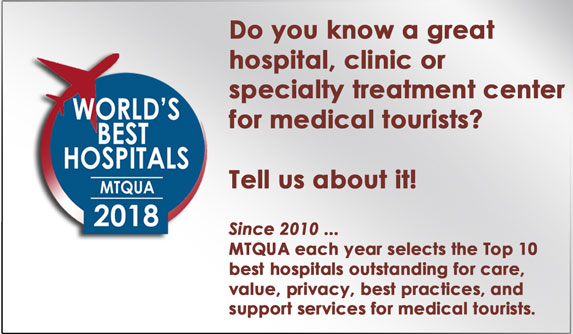 When you started thinking about having a treatment abroad, I’m sure you found plenty of hospitals, clinics, doctors and medical tourism agents that all were happy to take your money. Where do you begin?
When you started thinking about having a treatment abroad, I’m sure you found plenty of hospitals, clinics, doctors and medical tourism agents that all were happy to take your money. Where do you begin?
Some people will plunge right in, to contact what seem to be the best hospitals for them. Often, they find it difficult to communicate with the hospital, and decide to work with a medical tourism company instead. After all, the procedure they need involves travel, so wouldn’t medical tourism companies be able to help?
Other people will look for personal assistance from the beginning to help them select the provider and the specialist they need.
What can you expect to get from a medical travel “facilitator?”
It depends on the services that the facilitation company provides for you.
“Facilitator” is another name for an agent, a broker, or a handler. Facilitation from an agent or broker has its use, and its limitations. The term comes from the travel industry – someone or some agency that offers to facilitate some or all of your travel and accommodations assistance, airport transportation to and from your hotel, and touring services.
In “medical tourism,” facilitation often includes a few extras: other “ground handling” or “destination” services that have been added to the typical travel agent support. These services generally include transportation to and from the hospital or clinic, use of a cell phone, and sometimes, a visit to the hospital if you have had surgery and are staying overnight.
What this type of “facilitator” lacks is any sense of the medical and healing environments that affect the outcome of an international patient’s procedure. Yet this type of facilitator is prevalent in the medical tourism industry.
To be fair, most international patients also don’t have a sense of the situations they will – or may – find themselves in once they arrive at their medical destination.
10 questions to ask yourself before choosing a medical destination.

 >
>